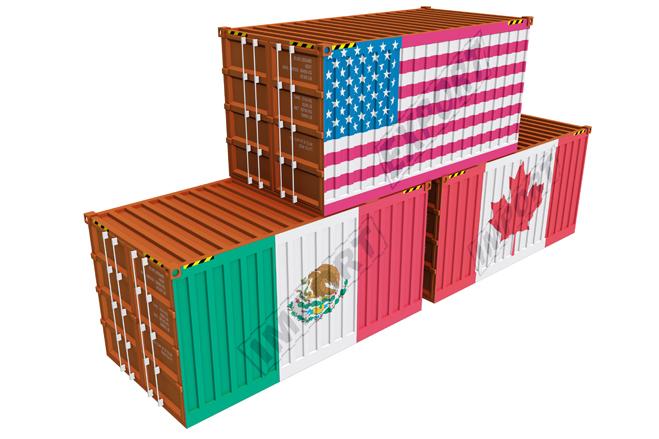Considering getting your NAFTA Certificates of Origins (NCO) updated? While setting up your review for your blanket certificates – here are some best practices you should consider:
Tip 1: Be sure certificates are accurately completed
Ensuring that at face value, the certificates have proper coding and are fully completed is one of the first thing companies reviewing NCOs for their North American vendors will do. It may seem like good sense but there is a surprising number of certificates that have missing or non valid information and data submitted to authorities. To avoid delays or unnecessary complications, familiarize yourself on how to properly complete the require document. The essential of what you need to know is found on the second page of the NAFTA Certificate of Origin. Still not comfortable with the required form? Try enlisting the services of a customs broker; specialized personnel who know this paperwork inside out.
Tip 2: Be sure your goods are NAFTA Eligible
Avoid delays and useless hassles by ensuring that the goods that are listed on your NCO are NAFTA eligible. If you’re an importer this might be a bit more tricky as you essentially depend on the foreign vendor to determine if the good qualify. The process to determine if the good qualify necessitates all your attention and here are two good tips to remember:
- Verify that a senior employee has signed the document. Employees higher up the payroll are most likely to pay attention to the details.
- Question the vendor about the raw material they use that is sourced outside of North America. If this is the case, verify just how they determined NAFTA qualification. The answer will usually be a fairly good indicator of how the vendor conducted its review.
Additionally, you may want to freshen up on the NAFTA rules of origin. Indeed, when the trade deal was first negotiated, the rules of origin were created to provide certainty and predictability to producers, exporters and importers. They were also designed to ensure that the benefits linked to NAFTA were not extended to goods exported from non-NAFTA countries which have undergone only minimal processing inNorth America.
Tip 3: Check Each Customs Entry
If NAFTA is claimed on a U.S. Or Canadian customs entry, a valid NCO is required for the products. Setting up a process by which you verify every entry is highly important, especially if you are frequently importing new products. If this is a review you only think about towards the end of the year, this could something to think about. You may want to think about having a procedure in place such as obtaining an updated blanket NCO in case you purchase new products halfway through the year.
Tip 4: Blanket versus Individual NCOs
When you look back at your time and resources, think about which NCO may be more adapted to your needs. Blanket certificates of origin cover a 365 day period while individual certificates are limited to a one-time use. If you have infrequent purchases, it may be easier to ask the vendor to provide an individual NCO each time.
Tip 5: Plan a NAFTA Maintenance Program
If tomorrow morning you were chosen for a NAFTA verification audit by authorities, would you know where to find all your files, current and archived? Save yourself the hassle and stress and plan ahead. Create and maintain a system to keep track of your documents. Remember, in Canada, import documents must be archived for six years plus the current year and in the U.S. Its five years.
Tip 6: Get to know NAFTA
G.I. Joe said it best : “Knowing is half the battle”, and that applies to dealing with customs authorities; ignorance just isn’t an acceptable excuse. To avoid important penalties and duty charges, sign-up to a NAFTA seminar or webinar to refresh and increase your knowledge – especially if you have a role to play in managing NCOs or if you are a supplier to North American companies. Get to know NAFTA and save yourself some headaches down the road.
Need a fillable PDF copy of the NAFTA certificate or other trade documents? Click here.

 Payment
Payment  My Account
My Account
